What Are The Benefits Of Green Tea?
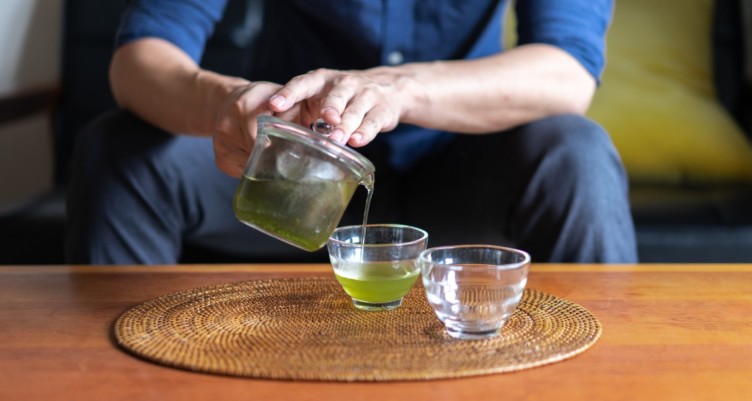
- Green tea is more than just a beverage—it also offers benefits for your body and mind.
- Green tea contains polyphenols. These potent compounds are antioxidants. They can support skin health, the brain, longevity, metabolism and more.
- Find green tea extract in Bulletproof Polyphenomenal. It’s a supplement loaded with polyphenols.
Green tea is well-known for being more than a comforting, caffeinated beverage. But what are the benefits of green tea that make it so remarkable? Should you start brewing matcha green tea in the mornings in place of coffee? And does green tea extract deliver the same benefits as hot or iced tea?
Keep reading to learn how to choose quality green teas which benefits have science to back them up.
What is Green Tea?
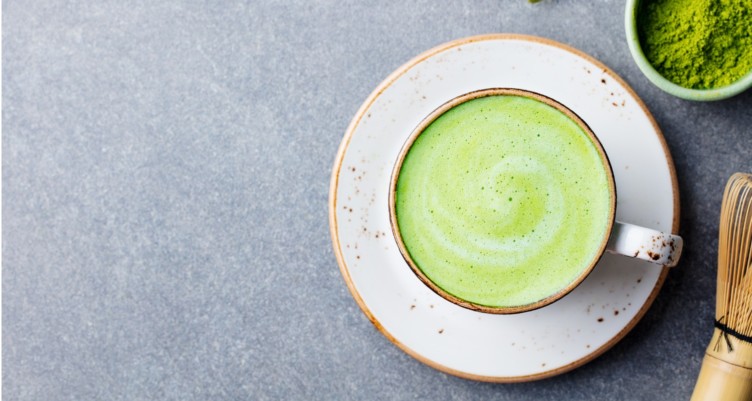
Green tea is a delicious and beneficial beverage made from the leaves of the Camellia sinensis plant.[1] This is the same plant that produces black, white and oolong teas. The difference between these teas lies in how the leaves are processed. To make green tea, the leaves are quickly heated to help maintain their green color and fresh flavor. Gently heating or steaming the leaves prevents the oxidation that gives other teas their signature colors and deeper flavors. This process helps preserve the beneficial compounds in green tea.
Green tea consumption[2] dates back over 5,000 years in China, where Traditional Chinese Medicine still considers it to be medicinal. It is also widely consumed in Japan and South Korea.
Green tea is among the ingredients in Bulletproof Polyphenomenal. It includes nine antioxidants, from sources like pomegranate, turmeric, blueberries and green tea. These broad-spectrum polyphenols can help protect your brain from oxidative stress, fight free radicals and support healthy aging.
What is matcha green tea?
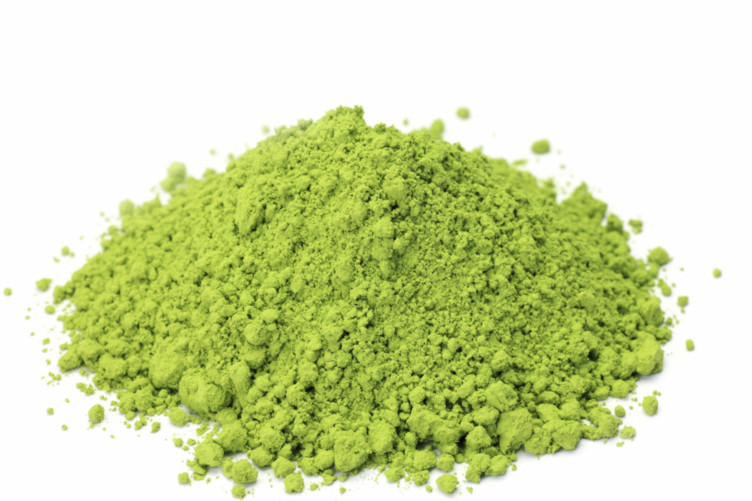
Matcha is a type of green tea. It is specially grown in the shade to boost chlorophyll production. The leaves are a darker, more vibrant green. Matcha green tea[3] contains more amino acids and L-theanine, and it has a less bitter flavor.
Only the leaves are used to make matcha. They are briefly steamed and dried, then ground into a fine powder. The powder is whisked into hot (not boiling) water to create a frothy, creamy tea. Since you consume the entire leaf, matcha typically contains more caffeine and antioxidants than traditional green tea.
Related: Rooibos Tea Benefits Weight Management, Plus 9 Other Reasons to Drink It
What are the Benefits of Green Tea?
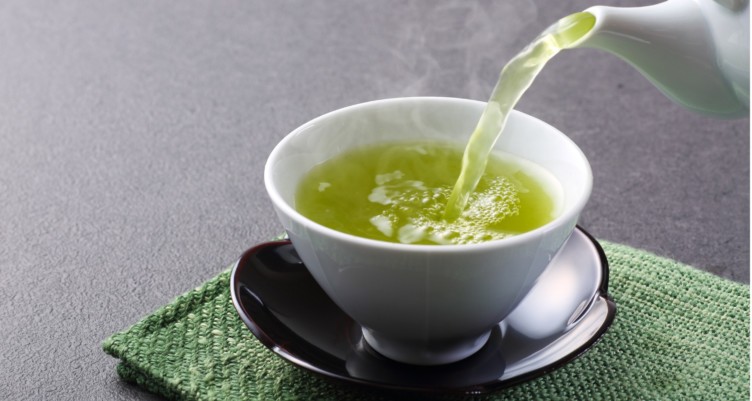
What are the benefits of green tea[4] that are backed by science? Here’s a summary:
Antioxidant Properties with Polyphenols
Green tea contains polyphenols, potent compounds with antioxidant-like qualities. The best known of these compounds is epigallocatechin gallate, or EGCG.[5] Studies suggest that these polyphenols, called catechins, may protect cells from damaging free radicals.
The catechins in green tea do have a beneficial impact on markers of cardiovascular health, including body weight, blood pressure and blood glucose. However, a 2022 review and meta-analysis published in Nutrition, Metabolism and Cardiovascular Diseases cautioned that individual health and lifestyle habits may influence the impact of green tea.[6]
Benefit of Green Tea for Skin

Research has found that green tea can support skin health[7] when applied to the skin and/or taken as a supplement. It can also help promote healthy aging by improving your skin’s elasticity and reducing the effects of skin damage caused by the sun.
However, a 2015 review[8] reported that while green tea is “very promising,” larger human studies are needed.
Brain Health
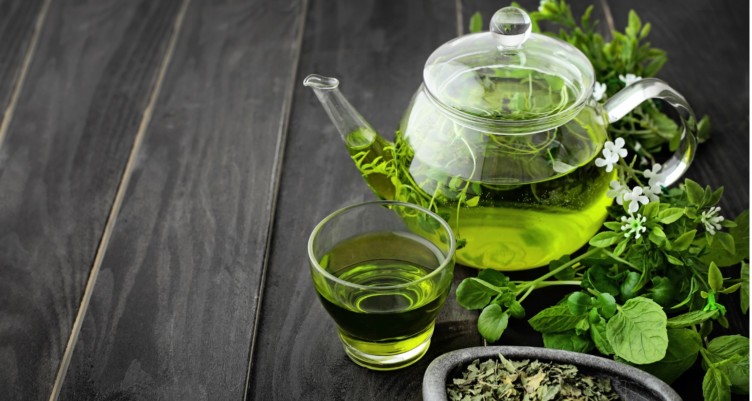
Drinking green tea may help preserve cognition as you age, according to a 2020 study of nearly 4,000 middle-age and older adults.[9] While researchers said more human studies are needed, they found a connection between drinking green tea and healthy cognition.
Green tea extract also appears to have a positive effect on cognition.[10]
L-theanine is an amino acid found in green tea. Taken as a supplement, L-theanine may help reduce feelings of stress and anxiety, according to a 2020 systematic review.[11] As a component of green tea, it seems to work synergistically with other compounds like caffeine to elicit positive effects on clarity, relaxation and alertness.[12] That is, no single compound is responsible for all the benefits of green tea.
May Help Burn Fat
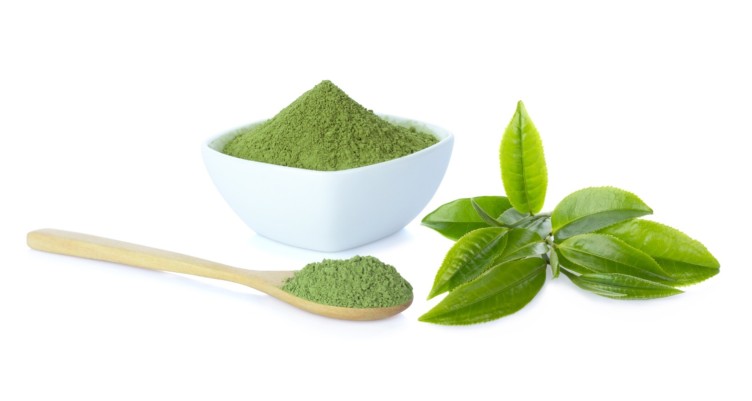
Green tea’s antioxidant properties also positively impact metabolism and fat burning. A 2022 review[13] found that those results were enhanced when green tea was combined with resistance training or aerobic workouts.
Promotes Longevity
A study from 2021[14] found that those who consumed seven cups of green tea daily were 62% less likely to die of any cause. This survey included 46,213 Japanese adults ages 40 to 79 at the outset – and included individuals who had had strokes and heart attacks.
What to Know Before You Buy Green Tea
Now that we’ve answered, “what are the benefits of green tea,” let’s discuss the (few) drawbacks. Keep these tips in mind when buying and drinking green tea:
- Avoid mycotoxins. While more common in black tea, low quality green tea can have appreciable levels of ochratoxin A and aflatoxin.[15] Any tea can grow mold when stored improperly, so buy what you will use in a couple of months and keep it dry. Choose brands that are transparent about sourcing, processing and ingredients. Also consider buying organic green tea to avoid pesticide or herbicide residue.
- Optimal nutrient absorption. Green tea can interfere with the absorption of both iron[16] and folic acid.[17] If you are concerned, talk to your health-care provider about testing your levels of these nutrients. Additionally, consider drinking green tea when you are not eating.
- Be aware of fluoride and oxalate levels. Tea plants accumulate fluoride from the soil.[18] Green tea also contains oxalate[19], an anti-nutrient that prevents calcium absorption and can contribute to kidney stones in some.
Consuming too much green tea extract can be detrimental to your health. You may experience side effects like occasional constipation or an upset stomach. Green tea can interact with many prescription medications so consult with your healthcare provider for medical advice before supplementing with green tea extract.
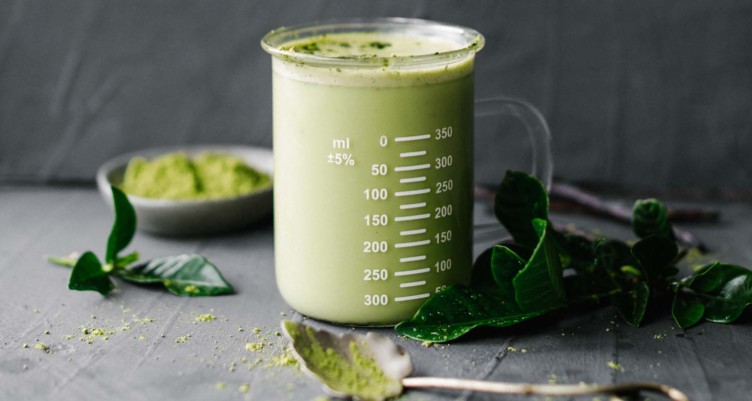
Ready to start brewing green tea at home? Try these recipes for new ways to drink green tea, from iced drinks to delicious spreads.
- Ginger-Mint Green Tea Cooler: This refreshing drink gets a bit of a spicy kick from fresh-grated ginger.
- Keto Matcha Coconut Butter: This recipe puts a yummy (and antioxidant-rich!) matcha spin on coconut butter.
- Matcha Soda: Made with matcha tea powder and soda or sparkling water, this easy recipe produces a bubbly and refreshing drink.
- Vanilla Matcha Latte: Switch up your morning routine with this well-rounded and subtly earthy matcha latte.
- Berry Matcha Smoothie: Energize your day with this delicious (and highly nutritious!) smoothie.
- Keto Iced Matcha Latte: Just a few minutes in the blender is all it takes to create this nourishing matcha-filled treat.
Want to learn how to make the best cup of tea, ever? Check out our Bulletproof Tea Guide.
Sign up for early access to sales, product launches, the latest Bulletproof news and more!



